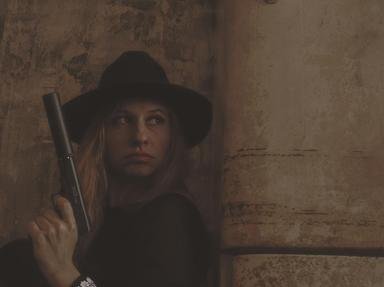Quiz Answer Key and Fun Facts
1. How had Kennedy fared in his most recent primary before California?
2. Where had Kennedy spent most of his time on the day of the California primary?
3. What prompted Kennedy to chide Roger Mudd about his language during a television interview on election night?
4. Of the following, who was NOT mentioned by Kennedy in his victory speech on election night?
5. Why did Kennedy go into the kitchen pantry after making his speech?
6. What were the last recorded words spoken by Kennedy?
7. What was the name of the photographer who may have taken pictures of the shooting itself?
8. Which of the following people was farthest from Kennedy at the moment he was shot?
9. Besides Kennedy, how many other people were hit by gunshots in the assassination?
10. What are generally believed to be Kennedy's last spoken words?
11. Although it is widely agreed that Sirhan was firing a gun in Kennedy's presence, not everyone believes he killed Kennedy. Other than Sirhan, who is most frequently mentioned as Kennedy's killer?
12. Who credited Robert Kennedy with saving his life on election day?
13. From the hotel, where did the ambulance take Kennedy?
14. Taking into account Kennedy's wins in the June 4 primaries in California and South Dakota, at the time of his death, what was the ranking of the three leading Democratic candidates in the 1968 race, from the one having the most delegates to the one having the fewest?
15. In his eulogy, Senator Ted Kennedy used a quote that his brother had often spoken on the campaign trail, "Some men see things as they are and say why. I dream things that never were and say why not." From what writer was this quote paraphrased?
Source: Author
d2407
This quiz was reviewed by FunTrivia editor
DakotaNorth before going online.
Any errors found in FunTrivia content are routinely corrected through our feedback system.

